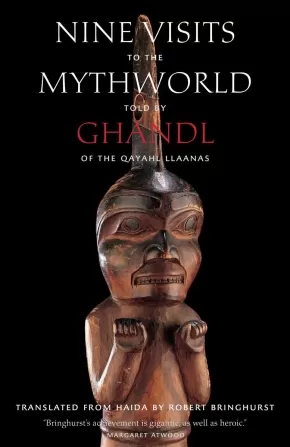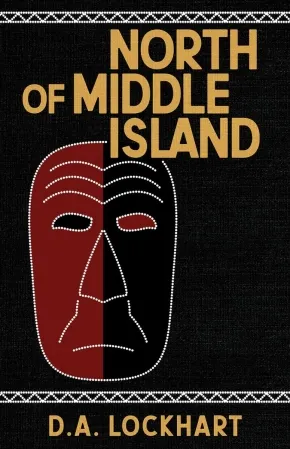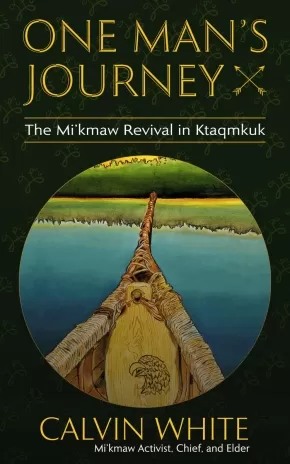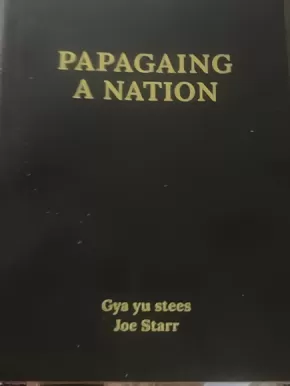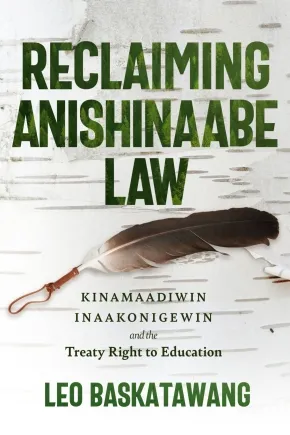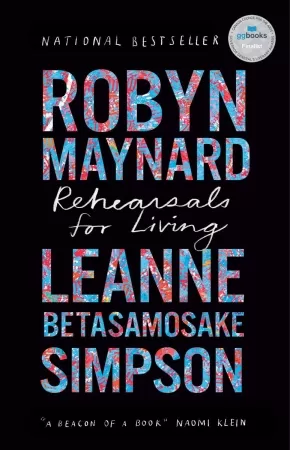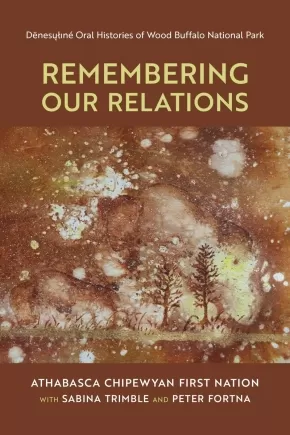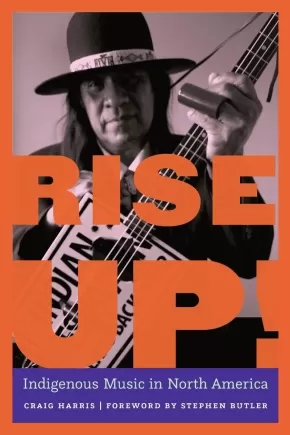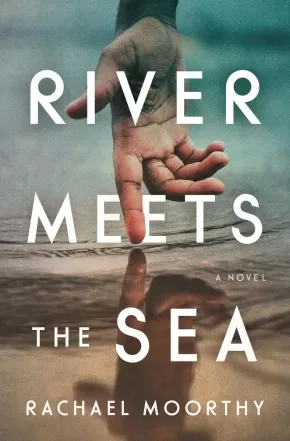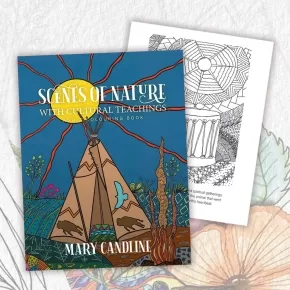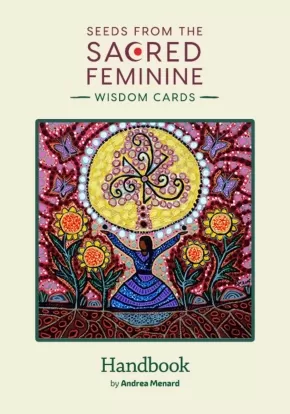
Indigenous Peoples in Canada
286
-
300
of
1085 Results;
Sort By
Go To
of 73
Nine Visits to the Mythworld: Told by Ghandl of the Qayahl Llaanas
$26.95
Format:
Paperback
Text Content Territories:
Indigenous Canadian; First Nations; Haida;
Reading Level: N/A
ISBN / Barcode: 9781771623773
Synopsis:
Synopsis:
In the Fall of 1900, a young American anthropologist named John Swanton arrived in the Haida country, on the Northwest Coast of North America, intending to learn everything he could about Haida mythology. He spent the next ten months phonetically transcribing several thousand pages of myths, stories, histories and songs in the Haida language. Swanton met a number of fine mythtellers during his year in the Haida country. Each had his own style and his own repertoire. Two of them—a blind man in his fifties by the name of Ghandl, and a septuagenarian named Skaay—were artists of extraordinary stature, revered in their own communities and admired ever since by the few specialists aware of their great legacy.
Nine Visits to the Mythworld includes all the finest works of one of these master mythtellers. In November 1900, when Ghandl dictated these nine stories, the Haida world lay in near ruins. Wave upon wave of smallpox and other diseases, rapacious commercial exploitation by fur traders, whalers and miners, and relentless missionization by the church had taken a huge toll on Haida culture. Yet in the blind poet’s mind, the great tradition lived, and in his voice it comes alive. Robert Bringhurst’s eloquent and vivid translations of these works are supplemented by explanatory notes that supply the needed background information.
Additional Information
224 pages | 5.50" x 8.50" | b&w photographs | Paperback
North of Middle Island
$17.95
Format:
Paperback
Text Content Territories:
Indigenous Canadian; First Nations; Anishinaabeg; Ojibway; Chippewas of the Thames ;
Reading Level: n/a
ISBN / Barcode: 9781928120377
Synopsis:
Synopsis:
Journey to the southernmost tip of the territories held by Canada. North of Middle Island opens with a collection of individual poems that capture the spirit of the relatively isolated, sparsely populated community of Pelee Island.
The pieces explore contemporary Indigenous experience in the natural and built environments of the island and surrounding waters. The book concludes with an epic, "rarely true" narrative of modern-day warriors, told in traditional Anglo-Saxon style-a new Lenape myth of how Deerwoman (Ahtuhxkwe) comes to Pelee Island. The events of this epic tale are loosely based on the infamous professional wrestler and actor Rowdy Roddy Piper's time on the island and Wrestlemania XII, Piper's notorious "Backlot Brawl" with fellow wrestler Goldust (Nkuli Punkw). Follow acclaimed Moravian of the Thames First Nation poet D.A. Lockhart on this lyrical, epic journey into the unique culture and landscapes that lie just North of Middle Island.
Additional Information
93 pages | 5.50" x 8.50"
Old Gods: Poems
$19.95
Format:
Paperback
Text Content Territories:
Indigenous Canadian; Métis;
Reading Level: N/A
ISBN / Barcode: 9780889714465
Synopsis:
Synopsis:
Métis Ukrainian writer Conor Kerr’s sharp and incisive poems move restlessly across landscapes and time.
Conor Kerr’s poetry is in constant motion. 4Runners streak through the night, racing with coyotes and roving across the land. Buses travel from town to town, from one memory to another, from past to present. Friends and lovers search for each other on Instagram and find nothing. And always the natural world travels alongside: the watching magpies, woodpeckers and cedar waxwings, the coyotes and porcupines. Family is the crisp wings of mallard ducks flying at dawn, just as it is a game of crib, a Mario Kart race, a dance party.
Old Gods defies colonialism on the Prairies. Kerr situates his reader in the Métis mindset: the old gods of the land are alive within the rivers, the birds, the hills and the prairies that surround us, and they’ll always be here.
Additional Information
96 pages | 5.50" x 8.00" | Paperback
One Man's Journey: The Mi'kmaw Revival in Ktaqmkuk
$26.95
Format:
Paperback
Text Content Territories:
Indigenous Canadian; First Nations; Mi'kmaq;
Reading Level: N/A
ISBN / Barcode: 9781990445088
Synopsis:
Synopsis:
With a story spanning over seventy years of the life of respected Elder Calvin White, One Man’s Journey weaves personal history with White’s account of the Mi’kmaw movement and his role in the reclamation and restoration of pride in Mi’kmaw culture in Newfoundland.
Elder White’s journey began in the forests surrounding his home of Flat Bay, where he learned to fish, hunt, and gather from a group of respected mentors who influenced and inspired him. His story recounts how the lessons learned from these valuable moments fueled his later work to spearhead the Mi’kmaw movement throughout the island of Newfoundland, amid the fight for recognition by the provincial and federal governments. His words do not shy away from the prejudice and discrimination faced by his people, and they provide a personal account of the history, responsibilities, philosophy, and worldview of his community.
One Man’s Journey is a personal and critical look at the processes that have led to the recognition of Mi’kmaw people in Newfoundland. The book shares knowledge and history with a new generation so they can continue the movement to which Elder White has been so instrumental.
Additional Information
194 pages | 6.00" x 9.00" | Paperback
Papaging A Nation
$20.00
Format:
Paperback
Text Content Territories:
Indigenous Canadian; First Nations; Haisla (Kitamaat);
Grade Levels: University/College;
ISBN / Barcode: 9780994083012
Synopsis:
Synopsis:
Description of work from author: "This is a snapshot of how the Methodist Church of Canada upon invitation by Kitamaat’s Wahouksgamalayou (Charlie Amos). It is about the key players and their role: Wahouksgamalayou, Thomas Crosby and his Lax Kwala’ams catechists, George Raley, and the Women’s Missinay Society of the Methodist Church."
Educator Information
Senior secondary, Post-secondary, Indigenous history
Peace and Good Order: The Case for Indigenous Justice in Canada (PB)
$22.00
Format:
Paperback
Text Content Territories:
Indigenous Canadian;
Reading Level: N/A
ISBN / Barcode: 9780771048746
Synopsis:
Synopsis:
An urgent, informed, intimate condemnation of the Canadian state and its failure to deliver justice to Indigenous people by national bestselling author and former Crown prosecutor Harold R. Johnson. Now with a brand new foreward.
"The night of the decision in the Gerald Stanley trial for the murder of Colten Boushie, I received a text message from a retired provincial court judge. He was feeling ashamed for his time in a system that was so badly tilted. I too feel this way about my time as both defence counsel and as a Crown prosecutor; that I didn't have the courage to stand up in the courtroom and shout 'Enough is enough.' This book is my act of taking responsibility for what I did, for my actions and inactions." -- Harold R. Johnson
In early 2018, the failures of Canada's justice system were sharply and painfully revealed in the verdicts issued in the deaths of Colten Boushie and Tina Fontaine. The outrage and confusion that followed those verdicts inspired former Crown prosecutor and bestselling author Harold R. Johnson to make the case against Canada for its failure to fulfill its duty under Treaty to effectively deliver justice to Indigenous people, worsening the situation and ensuring long-term damage to Indigenous communities.
In this direct, concise, and essential volume, Harold R. Johnson examines the justice system's failures to deliver "peace and good order" to Indigenous people. He explores the part that he understands himself to have played in that mismanagement, drawing on insights he has gained from the experience; insights into the roots and immediate effects of how the justice system has failed Indigenous people, in all the communities in which they live; and insights into the struggle for peace and good order for Indigenous people now.
Additional Information
272 pages | 5.00" x 7.51" | B&W photo spread in text | Paperback
Plundering the North: A History of Settler Colonialism, Corporate Welfare, and Food Insecurity
$27.95
Format:
Paperback
Text Content Territories:
Indigenous Canadian;
Reading Level: N/A
ISBN / Barcode: 9781772840490
Synopsis:
Synopsis:
The manufacturing of a chronic food crisis.
Food insecurity in the North is one of Canada’s most shameful public health and human rights crises. In Plundering the North, Kristin Burnett and Travis Hay examine the disturbing mechanics behind the origins of this crisis: state and corporate intervention in northern Indigenous foodways.
Despite claims to the contrary by governments, the Hudson’s Bay Company (HBC), and the contemporary North West Company (NWC), the exorbitant cost of food in the North is neither a naturally occurring phenomenon nor the result of free-market forces. Rather, inflated food prices are the direct result of government policies and corporate monopolies. Using food as a lens to track the institutional presence of the Canadian state in the North, Burnett and Hay chart the social, economic, and political changes that have taken place in northern Ontario since the 1950s. They explore the roles of state food policy and the HBC and NWC in setting up, perpetuating, and profiting from food insecurity while undermining Indigenous food sovereignties and self-determination.
Plundering the North provides fresh insight into Canada’s settler colonial project by re-evaluating northern food policy and laying bare the governmental and corporate processes behind the chronic food insecurity experienced by northern Indigenous communities.
Reviews
“Spanning the late nineteenth century to the current day, Plundering the North provides meticulous detail about the ways in which HBC and NWC operated as agents of the state’s settler-colonial ambitions while the state subsidized the processes and profits of those private corporations. This is a valuable, unique, and timely contribution.”— Elaine Power
Additional Information
232 pages | 6.00" x 9.00" | Index, Bibliography | Paperback
Reclaiming Anishinaabe Law: Kinamaadiwin Inaakonigewin and the Treaty Right to Education
$27.95
Format:
Paperback
Text Content Territories:
Indigenous Canadian; First Nations; Anishinaabeg;
Grade Levels: University/College;
ISBN / Barcode: 9781772840254
Synopsis:
Synopsis:
A manifesto for the future of Indigenous Education in Canada
In Reclaiming Anishinaabe Law Leo Baskatawang traces the history of the neglected treaty relationship between the Crown and the Anishinaabe Nation in Treaty #3, and the Canadian government’s egregious failings to administer effective education policy for Indigenous youth—failures epitomized by, but not limited to, the horrors of the residential school system.
Rooted in the belief that Indigenous education should be governed and administered by Indigenous peoples, Baskatawang envisions a hopeful future for Indigenous nations where their traditional laws are formally recognized and affirmed by the governments of Canada. Baskatawang thereby details the efforts being made in Treaty #3 territory to revitalize and codify the Anishinaabe education law, kinamaadiwin inaakonigewin. Kinamaadiwin inaakonigewin considers education wholistically, such that it describes ways of knowing, being, doing, relating, and connecting to the land that are grounded in tradition, while also positioning its learners for success in life, both on and off the reserve.
As the backbone of an Indigenous-led education system, kinamaadiwin inaakonigewin enacts Anishinaabe self-determination, and has the potential to bring about cultural resurgence, language revitalization, and a new era of Crown-Indigenous relations in Canada. Reclaiming Anishinaabe Law challenges policy makers to push beyond apologies and performative politics, and to engage in meaningful reconciliation practices by recognizing and affirming the laws that the Anishinaabeg have always used to govern themselves.
Reviews
"Leo Baskatawang offers a passionate call for Indigenous self-determination and a reclamation of Anishinaabe education law and practice in raising up the next generation. This book can be used to envision a future that uses Indigenous treaties to drive systemic change in education."— Brittany Luby
"This book effectively weaves many sources to show how the revitalization of Anishinaabe law supports the resurgence of Anishinaabe education. It is nourishing food for thought." — John Borrows
Additional Information
240 pages | 6.00" x 9.00" | b&w illustrations, maps, index, bibliography | Paperback |
Rehearsals for Living (PB)
$23.00
Format:
Paperback
Text Content Territories:
Indigenous Canadian; First Nations; Anishinaabeg; Mississauga; Alderville First Nation;
Reading Level: n/a
ISBN / Barcode: 9781039000674
Synopsis:
Synopsis:
A revolutionary collaboration about the world we're living in now, between two of our most important contemporary thinkers, writers and activists.
When the world entered pandemic lockdown in spring 2020, Robyn Maynard, influential author of Policing Black Lives, and Leanne Betasamosake Simpson, renowned artist, musician, and author of Noopiming: The Cure for White Ladies, began writing each other letters—a gesture sparked by a desire for kinship and connection in a world shattering under the intersecting crises of pandemic, police killings, and climate catastrophe. These letters soon grew into a powerful exchange about where we go from here.
Rehearsals for Living is a captivating and visionary work—part debate, part dialogue, part lively and detailed familial correspondence between two razor-sharp writers. By articulating to each other Black and Indigenous perspectives on our unprecedented here and now, and reiterating the long-disavowed histories of slavery and colonization that have brought us to this moment, Maynard and Simpson create something new: an urgent demand for a different way forward, and a poetic call to dream up other ways of ordering earthly life.
Reviews
“This book must be read for its future vocabularies, its political intimacies, its careful assemblage of the materials of our activisms, and its generous and fulsome thinking.”—Dionne Brand, poet, novelist, and essayist
“Using the age-old practice of letter writing and the land itself as a palimpsest, Robyn Maynard and Leanne Betasamosake Simpson find common ground to challenge the moral legitimacy of the settler nation state, and reinscribe new ways of what it means to be beings who are human in the forensic landscapes of Canada. In Rehearsals for Living, two women, one Indigenous, the other Black and African-descended confront their shared yet different experiences of colonialism, provide new and subversive meanings to the colonial trope of being landed, the mechanism by which the land was (un)settled. Unflinchingly, and in long-overdue and profoundly-needed “reasonings” that reverberate with shared breath, Simpson and Maynard weave their ideas, thoughts and reflections and their deep caring for community and society through the network of issues that impact us today—the pandemic and the differentials in treatment for Black and Indigenous people, the role of BLM, abolition, the necessity of Nibi and homespace for the Nishnaabeg, the joys of living on the land, and parenting in the face of ecological and racial disasters are but a few of the challenges they grapple with. Rehearsals for Living is fundamental to understanding the interlocking, founding crimes of the Americas; necessary for remembering the many erased histories of the on-going struggle for justice, and altogether indispensable to those wanting to create possible solutions.”—M. NourbeSe Philip, author of Zong!
Additional Information
336 pages | 5.17" x 7.99" | Paperback
Remembering Our Relations: Dënesųłıné Oral Histories of Wood Buffalo National Park
$34.99
Format:
Paperback
Text Content Territories:
Indigenous Canadian; First Nations; Dene; Denesuline (Chipewyan);
Reading Level: N/A
ISBN / Barcode: 9781773854113
Synopsis:
Synopsis:
Elders and leaders remind us that telling and amplifying histories is key for healing. Remembering Our Relations is an ambitious collaborative oral history project that shares the story of Wood Buffalo National Park and the Dënesųłıné peoples it displaced.
Wood Buffalo National Park is located in the heart of Dënesųłıné homelands, where Dené people have lived from time immemorial. Central to the creation, expansion, and management of this park, Canada’s largest at nearly 45, 000 square kilometers, was the eviction of Dënesųłıné people from their home, the forced separation of Dene families, and restriction of their Treaty rights.
Remembering Our Relations tells the history of Wood Buffalo National Park from a Dene perspective and within the context of Treaty 8. Oral history and testimony from Dene Elders, knowledge-holders, leaders, and community members place Dënesųłıné voices first. With supporting archival research, this book demonstrates how the founding, expansion, and management of Wood Buffalo National Park fits into a wider pattern of promises broken by settler colonial governments managing land use throughout the twentieth and twenty-first centuries.
By prioritizing Dënesųłıné histories Remembering Our Relations deliberately challenges how Dene experiences have been erased, and how this erasure has been used to justify violence against Dënesųłıné homelands and people. Amplifying the voices and lives of the past, present, and future, Remembering Our Relations is a crucial step in the journey for healing and justice Dënesųłıné peoples have been pursuing for over a century.
Additional Information
352 pages | 6.00" x 9.00" | Paperback
Rise Up!: Indigenous Music in North America
$40.95
Format:
Paperback
Text Content Territories:
Indigenous American; Indigenous Canadian;
Reading Level: N/A
ISBN / Barcode: 9781496236159
Synopsis:
Synopsis:
Music historian Craig Harris explores more than five hundred years of Indigenous history, religion, and cultural evolution in Rise Up! Indigenous Music in North America. More than powwow drums and wooden flutes, Indigenous music intersects with rock, blues, jazz, folk music, reggae, hip-hop, classical music, and more. Combining deep research with personal stories by nearly four dozen award-winning Indigenous musicians, Harris offers an eye-opening look at the growth of Indigenous music.
Among a host of North America’s most vital Indigenous musicians, the biographical narratives include new and well-established figures such as Mildred Bailey, Louis W. Ballard, Cody Blackbird, Donna Coane (Spirit of Thunderheart), Theresa “Bear” Fox, Robbie Robertson, Buffy Sainte-Marie, Joanne Shenandoah, DJ Shub (Dan General), Maria Tallchief, John Trudell, and Fawn Wood.
Reviews
“Spanning from its origins and early documentation to its renewed interest in the twenty-first century, Rise Up! brings Indigenous music full circle for the first time. The ancient heartbeat of the drum that connects each Indigenous person to the earth is finally explored.”—Dom Flemons, multi-instrumentalist, singer, and songwriter
“Rise Up! takes us on a journey into the deepest part of ourselves, beyond the wounds of our recent past, and into the heartbeat of our history, toward an unrestricted future full of possibility. . . . This book will be a help to many on our educational, healing, and reconciliation journeys.”—Sandra Sutter, Métis singer-songwriter
“Craig Harris has done a remarkable job in opening the door for anyone and everyone who reads this excellent book, introducing the reader to this amazing music as well as the lives of many who have created it and preserve it.”—David Amram, renowned multi-instrumentalist, composer, arranger, and conductor
Additional Information
344 pages | 6.00" x 9.00" | 40 Photos, Index | Paperback
River Meets the Sea: A Novel
$24.99
Format:
Paperback
Text Content Territories:
Indigenous Canadian;
Grade Levels: 12; University/College;
ISBN / Barcode: 9781487011420
Synopsis:
Synopsis:
A spellbinding, spirited tale of two men exploring masculinity, race, and belonging in a desperate search to feel at home in their own skins.
An enthralling nautical epic, River Meets the Sea traces the dual timelines of a white-passing Indigenous foster child in 1940s Vancouver and a teenage immigrant in the suburbs of Nanaimo in the 1970s.
A natural-born storyteller, Ronny is a left-handed "alley mutt" without a birth certificate who searches for his mother everywhere - most powerfully, he hears her voice in the surging Stó:lo River. Born in the middle of the ocean on a merchant ship departing Sri Lanka, Chandra is a Tamil boy with "skin like a charred eggplant" who finds his haven from the pressure to assimilate by swimming and surfing in the Salish Sea.
Moving gracefully between these parallel stories like a wave, the novel traces the seemingly separate lives of these sensitive young men and their everlasting connections to water. When their troubled paths inevitably cross, they form a sacred bond based on the mutual understanding of what it means to be othered, illuminating the interconnectedness of humanity and our innate relationship with the natural world.
Reviews
"Brilliant and inventive, River Meets the Sea is elegantly told in heartrending poetry. Moorthy's protagonists, Chandra and Ronny, feel familiar in their search for meaning and belonging, even as they grapple with the implications of race and masculinity. With exquisite prose in which water becomes just as much a character as Chandra and Ronny, River Meets the Sea flows smoothly between the protagonists' histories, the forces that propel them, and their inevitable meeting." — Francesca Ekwuyasi, author of Butter Honey Pig Bread
"Rachael Moorthy's writing is driven by an innate creative curiosity, interrogating history, identity, and the human condition, and always rooted in deep artistic and moral convictions."— Lee Henderson, author of The Road Narrows as You Go
"Rachael Moorthy's writing is driven by an innate creative curiosity, interrogating history, identity, and the human condition, and always rooted in deep artistic and moral convictions."— Lee Henderson, author of The Road Narrows as You Go
"Deeply poetic, fluid, and dreamlike, Rachael Moorthy's prose, much like her characters, is more than just the sum of its parts. She transports readers to a time and place thoroughly lived in with characters that carry powerful memories and stories. An excellent debut!" — Ajuawak Kapashesit, star of Indian Horse
Additional Information
400 pages | 5.25" x 8.00" | Paperback
Rocker from the Rez
$34.10
Format:
Paperback
Text Content Territories:
Indigenous Canadian;
Reading Level: N/A
ISBN / Barcode: 9780228628316
Synopsis:
Synopsis:
There are worse places to live than the rez. Still, family distractions make it almost impossible for Ray Smith and his three bandmates to rehearse every day. So, fresh from high school, the four move to Wakeville, Manitoba to pursue their passion for music.
A half-year later, gigs come fast and thick, with the group touring the northern province. However, too much partying and fighting leads to a bitter split between the band and their volatile bass player, Butch. Bad luck and sabotage from Butch causes gigs to dwindle, and with encouragement from his best friend and guitarist, Ray decides to join a new, well-known band, where his music career takes off. Soon he’s recognized on the street, has spots on TV, and back home he’s hailed a hero.
But success has a dark underbelly. A girl goes missing, and Ray’s loved ones are terrorized by a faceless, vengeful stalker. The question isn’t the culprit’s identity—Ray’s almost positive he knows who’s responsible. But stopping the killer before someone else is murdered…that’s a whole other story.
Additional Information
234 pages | 5.25" x 8.00"
Scenes of Nature with Cultural Teachings: Adult Colouring Book
$15.00
Artists:
Format:
Paperback
Text Content Territories:
Indigenous Canadian;
ISBN / Barcode: PC125
Synopsis:
Synopsis:
Step into a fascinating world of nature and art. These scenes of Mother Nature provide the opportunity to explore colours and creativity. The accompanying cultural teachings will inspire as you colour and in your life.
Educator Information
The publisher of this colouring book for adults has noted that it can be enjoyed by all ages.
Additional Information
21 x 0.3 x 21 cm
Seeds from the Sacred Feminine: A 52-Card Wisdom Deck with Handbook
$47.99
Artists:
Text Content Territories:
Indigenous Canadian; Métis;
Reading Level: N/A
ISBN / Barcode: 9781642509564
Synopsis:
Synopsis:
Embrace Your Divine Feminine Energy
Create new rituals and self-care habits with this oracle deck. These sacred inspirational cards inspired by land-based practises of the Metis people serve as a daily mental healer.
Re-energize and connect to the Metis culture. These oracle cards are the perfect way to help you slow down and awaken to the energy around and inside you. Andrea Menard writes beautifully while invoking connections to the land and indigenous teachings; use these cards as friendly reminders to dive into your divine feminine energy. Andrea Menard is a Metis woman whose Michif ancestry originates from St. Laurent, Manitoba, Canada. She is deeply influenced by Sacred Elements and guided by the teachings of her ancestral Grandmothers.
Enjoy colorful and beautifully layered art. These unique images bring emotional healing and a deep awakening to divine feminine energy. Sacred women, men, and gender-fluid individuals will find wisdom on every card. Enjoy 52 cards with beautiful images of original artwork by Metis painter, Leah Marie Dorion. Leah is an interdisciplinary Metis artist raised in Prince Albert, Saskatchewan, who views her Metis heritage as a unique bridge connecting all people to a greater knowledge.
Inside, you'll find:
• Ancient wisdom and teachings from Andrea Menard set to transform you
• Beautifully layered art from Leah Marie Dorion on a deck of cards set to awaken you
• A handbook guide set to spark your divine feminine energy
If you need a gift for the sacred woman in your life, you'll love Seeds of the Sacred Feminine.
Reviews
"What a feast! This collection of inspirational cards invoking the wisdom of the feminine is created entirely by Indigenous women, permeated by the fierce and tender heart of the Grandmothers. The artwork is glorious, the teachings are both luminous and grounded, the combination truly transformational. I will be gifting these cards, with the accompanying handbook, again and again."- Mirabai Starr, author of Wild Mercy and God of Love
"The Seeds from the Sacred Feminine is a delicate, gentle, and kind teaching that will help you get in touch with our sacred grandmothers, our guides for being in tune with nature and mother earth. Using this wisdom will draw you into the natural laws of Earth by helping you to return to emotional and mental harmony based on balancing yourself with the four sacred directions. The Messages are a special and comfortable way to be with the spirits and nature."- Barbara Hand Clow, author of Awakening the Planetary Mind and Alchemy of Nine Dimensions
"These are beautiful inspirational cards. They follow the medicine wheel paying attention to the land, water, wind and sun. May we all pay heed and allow our souls to rest upon any given day, to meditate on the thought and allow spirit to carry us to that place of wholeness." - Louise B. Halfe, author of The Crooked Good and Burning in This Midnight
"What a wonderfully refreshing idea. Truly inspired by the spirit of the female life-giver as it yields the tremendous opening of the passageway to life to be lived to its fullest potential. As has been prophesied the female energy is leading the way to renewal and prosperity as the Creator had intended." - Tom McCallum, Metis Elder, lodge keeper
"The Seeds From The Sacred Feminine wisdom deck is a powerful invitation to build a deeper relationship with all of creation. Each card carries beautiful medicine teachings that invoke a great understanding of all aspects of self. This deck carries a vibration of grace, love and truth. I highly recommend this gorgeous deck to all who wish to connect to Indigenous Earth and Spirit wisdom. It will enhance your divine gifts, remind you of your inherent knowing, and delight you with its beautiful artwork."- Asha Frost, Anishinaabekwe bestselling author of You are The Medicine
Additional Information
89 page handbook | 52 Cards | 4.00" x 6.00"
Sort By
Go To
of 73

